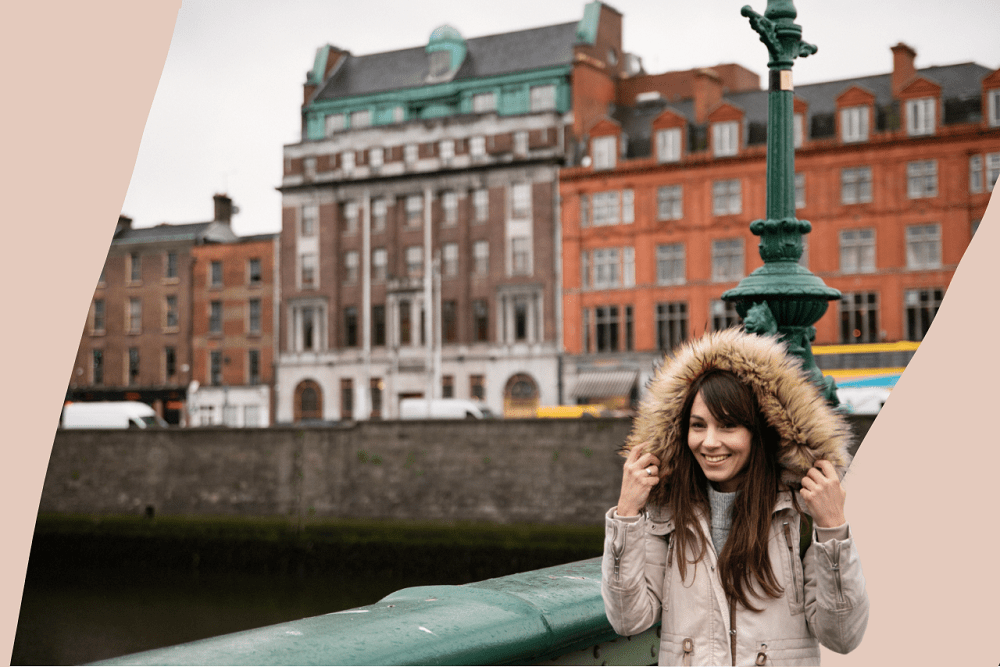As the old Irish proverb goes, ‘’If you’re lucky enough to be Irish, you’re lucky enough’’. But if you’re lucky enough to be moving to Ireland, then firstly, congratulations! It’s a warm and welcoming place to live.
But more importantly, when settling in the Emerald Isle, you make your own luck. And to put your best foot forward in the country, it’s best to get clued up about Ireland’s culture before you arrive.
Whenever the country of Ireland comes up in a conversation, people might think about St. Patrick’s day, the four-leaf clover, U2, and of course, a properly pulled pint of Guinness. But the country is so much more than a couple of cliches; it’s a place rich in culture, folklore, incredible food, world conquering music and some of the most beautiful landscapes on the planet.
If you’re moving to Ireland, here are some useful things to know about Irish culture.
LANGUAGE
English and Irish (Gaeilge) are the official languages of Ireland, and you’ll find English is generally spoken everywhere, though along the West Coast of Ireland, Irish speaking areas (known as Gaeltacht) are more common.
That said, some Irish names may, at first glance, not be completely straightforward to pronounce if you apply English phonetic rules. Before your visit to Ireland, you should get to grips with the sounds associated with various letter patterns, so you don’t end up mispronouncing someone’s name in a clumsy way. Here are just a handful of popular Irish names that are often mispronounced:
- Siobhan – pronounced Shiv-awn
- Seamus – Shay-muss
- Kiera – Kee-rah
- Aoife – Eee-fah
- Eoghan – Ow-an
- Caoimhe – Key-va
Do make an effort to learn the correct pronunciation of names before you arrive in Ireland; good manners cost nothing.
FOLKLORE
If you’ve investigated Irish ancestry and the origin of names, you’ll have likely discovered that many Irish names are rooted in folklore and Irish mythology. The name Aoife, for instance, is derived from the word ‘aoibh’, meaning ‘beauty’. According to Irish mythology, Aoife was a warrior princess – the greatest female warrior in the world – who gave birth to the Celtic war hero Cuchulainn’s only son, Connlach. Pretty cool, huh?
These connections to myth and folklore should come as no surprise. Indeed, Ireland is a nation of superb storytellers, and the country has produced some of the finest writers to have ever done it; James Joyce, Maeve Binchy, Oscar Wilde, Samuel Beckett, Bram Stoker, Roddy Doyle, Sally Rooney…the list goes on.
But the Irish art of telling a great tale goes back way further than these acclaimed authors. Dating back to medieval times, everyone will be familiar with the mythology of the leprechaun, who keep their pot of gold at the end of the rainbow. But did you know that the very idea of a fairy comes from Irish folklore, too? Other stories with roots in Irish mythology include the Children of Lir, the Shamrock and Finn McCool.
Read: The Arans:The best things to do when visiting this very Irish archipelago

SLANGUAGE
Bringing things back to the 21st Century, and the Irish still boast a wicked way with words and a fine sense of humour. You’ll hear some interesting and inventive slang being used while you’re here, and whilst we can’t detail all of it, here are a few of our favourite sayings:
- Grand – You’ll have heard ‘grand’ before, we’re sure. Rather than denoting opulent or luxurious, though, in Ireland, ‘grand’ is used to indicate that something is ‘okay’ or ‘fine’.
- Craic – You’ll no doubt have heard ‘what’s the craic?’, too, meaning ‘what’s new?’. But ‘craic’ can also be used to say something was fun…it was ‘good craic’. You may also hear the word ‘gas’ used in a similar way, though we wouldn’t recommend asking ‘what’s the gas?’. Instead, say ‘s/he’s a gas + an expletive of your choosing’ to denote someone is amusing.
- Banjaxed – A lovely one to say, ‘banjaxed’ means ‘broken’. It can also be used to mean ‘drunk’. Another Irish term we love for ‘drunk’ is ‘locked’.
- ‘Deadly’ – Simply meaning something is ‘excellent’, often referring to music or a film.
These are just a few of our favourites. Keep your ears open and your arms outstretched and we’re sure you’ll find a few favourite Irish slang terms, too.
SAINT PATRICK’S
Everyone knows St. Patrick because of the renowned celebrations on St. Patrick’s day. However, there’s a lot more to know about the Christian saint than just the Guinness fuelled celebrations associated with his name.
Contrary to popular belief, he wasn’t the one who brought Christianity to Ireland and neither was did he banish snakes from Ireland (that is a simple matter of geography and the country being surrounded by the sea).
Believed to have been born into Roman Britain in the fourth century, when St. Patrick was 16, it’s said he was taken from his home by Irish raiders and forced into slavery. For six years, St. Patrick worked as a herdsman before he fled to Great Britain.
He returned to Ireland after a brief while as a missionary and started his mission to convert the locals to his own faith. He is now arguably the most important patron saint of Ireland, and St. Patrick’s day is celebrated across the world on March 17th (believed by many to be the date of his death).
Whilst, globally, the day is associated with revelry, in Ireland families will attend church in the morning of the 17th. Later in the day, a traditional meal of bacon and boiled cabbage is eaten. And a deadly meal it is at that.

THE EMERALD ISLE
There are a couple of reasons why Ireland is referred to as the Emerald Isle. This is because Ireland is a lush green country with almost no dry patches and also because there have been many poets and authors over the years who have taken a liking to this term. The only spots on the Emerald Isle that you’ll see without some sort of grass or other vegetation are the rugged ones with their rocky landscape and the cities.
The climate that prevails in Ireland is also very conducive to this type of lush green vegetation as the summers are moist and warm while the winters are cold and wet. Therefore, it’s no wonder that anyone who sees Ireland from a distance will automatically assume that it’s an island made of emerald.
Whilst the saying ‘the grass is always greener on the other side’ is a well used proverb, when casting your gaze at Ireland, the phrase becomes literal. It’s simply the most beautiful place on earth.
THE BOTTOM LINE
These are just a few things that any visitor to Ireland should know about the country’s unique and fascinating culture. Visitors, particularly those from Britain, should also endeavour to learn about the history of Ireland and its relationship with imperialist Britain, which sadly isn’t often taught in British schools. Before arriving in Ireland, do dig a little deeper into this relationship.
Do so, and you’ll learn to appreciate a beautiful country with a complicated history, but one which is very much thriving in 2021.





